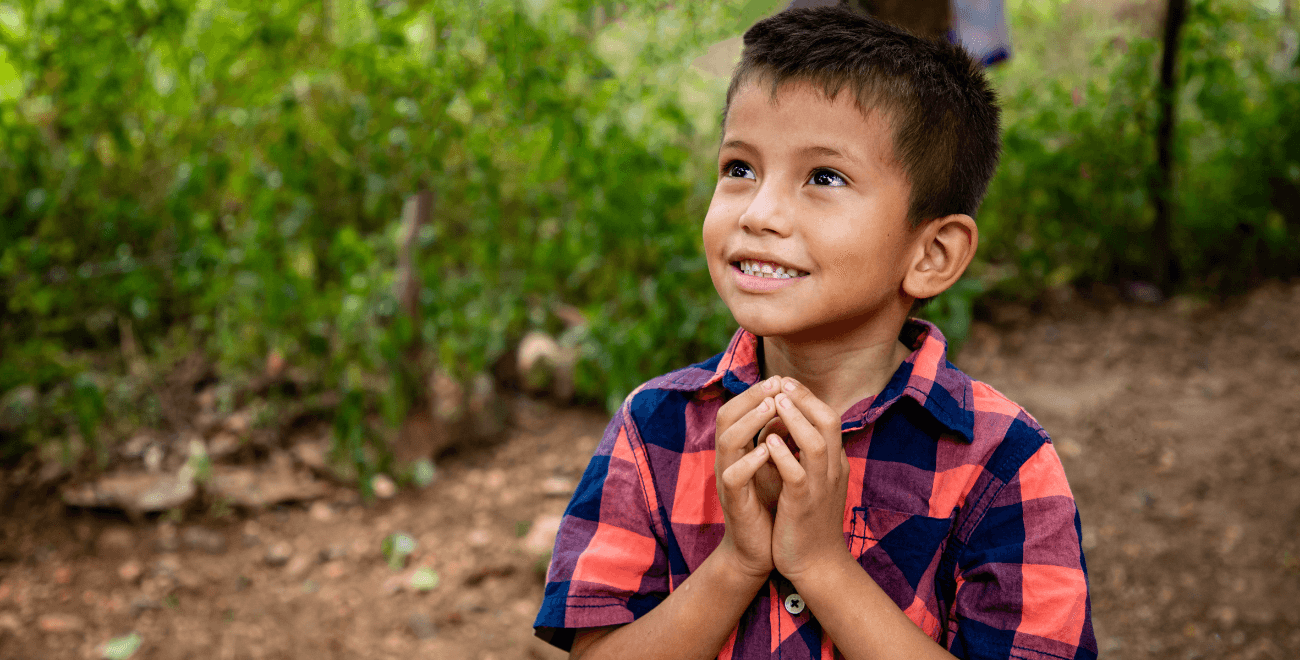Discover more
3 Stories of Radical Love and Reconciliation From Rwanda
25 years on from the 1994 genocide, meet the young people bringing change to their nation.
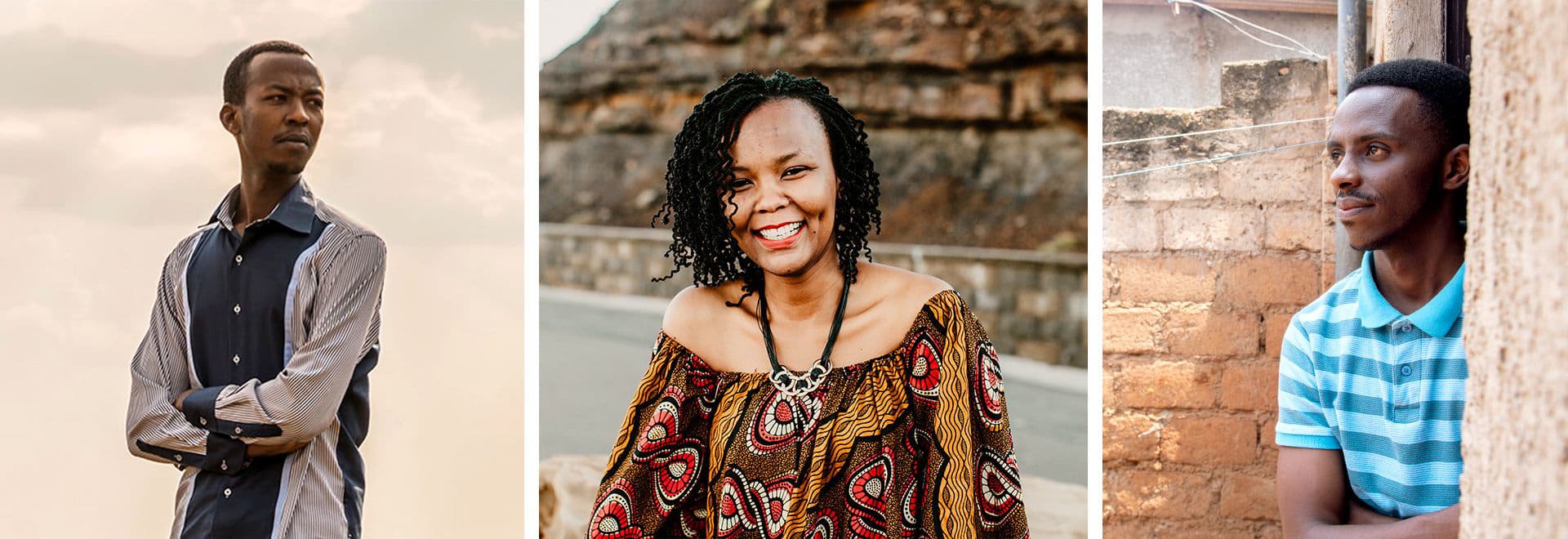
*Warning: This post contains details of violence that some readers may find disturbing.
28 years ago, one of the worst genocides of the twentieth century took place across the landlocked African nation of Rwanda.
Families were ripped apart as neighbours attacked neighbours and friends turned against friends.
In the space of one hundred days, more than 800,000 men, women and children were slaughtered as Hutu militias took up arms against the ethnic Tutsis and moderate Hutus. By the end, 12% of the Rwandan population had been killed, a scar that remains 28 years later.
Never again
Following a hundred of the darkest days in Rwandan history, it’s hard to imagine how a nation could recover from such atrocity. How victims and survivors could go back to living side by side.
Yet, on the 28th anniversary of the 1994 genocide, Rwanda’s story is one of unity and peace thanks to the pursuit of radical reconciliation.
Pursuing the radical
From community run Gacaca courts “justice amongst the grass” to the National Unity and Reconciliation Commission, Rwandan’s have sought to build peace at every level.
Christine, Methode and Christian are just three of these incredible peacemakers—young professionals making deliberate decisions to pursue love and reconciliation to be able to forgive.
Methode’s story
Methode was six years old when the Rwanda genocide started. His father, mother and three of his siblings were brutally killed. Methode and his aunt narrowly escaped being killed by hiding in a very dangerous swamp.
For days, Methode witnessed thousands of people being killed using machetes, axes, clubs and guns and then dumped in the swamp where he was hiding. By God’s grace, Methode and his aunt were spared.
Radical restoration
Methode always lived in fear because of the horrific killings he witnessed at a tender age. He had nightmares and was very bitter with life.
“Because of all that happened to me, and all the anger I had, I wanted to become a soldier to seek revenge for my family,” recalls Methode.
With the help of trauma counselling through the Compassion programme at his local church, Methode was able to slowly process all that had happened to him.
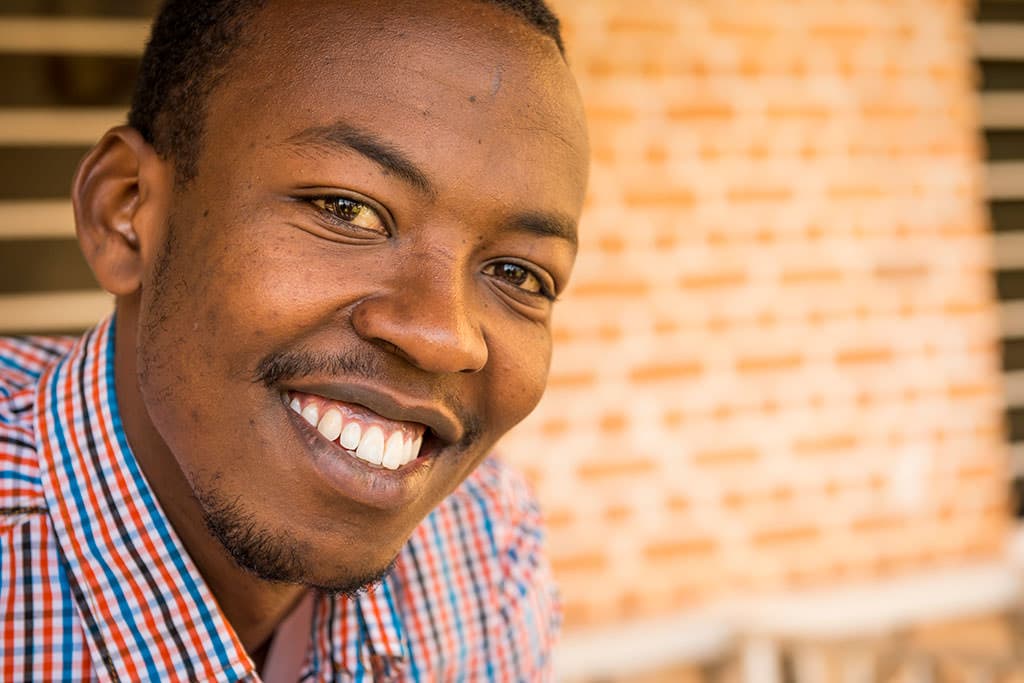
“Through the regular project activities like singing, games, praying together and reading the Bible, I started to realise that I could get peace from God. I started singing in the choir and in my prayers, telling God to take away all that was heavy in my heart. People in my family where surprised by the sudden change in my behaviour.”
With time, Methode took the painful but healing steps toward forgiveness. He discarded the list of those he wanted to kill and instead, chose to forgive and step into a new future.
Methode is now a successful business owner in Rwanda’s tourism industry. As he strives to understand God’s love for him, he extends love to those he once hated and even hires Hutus—his former enemies—to work for him.
Christine’s story
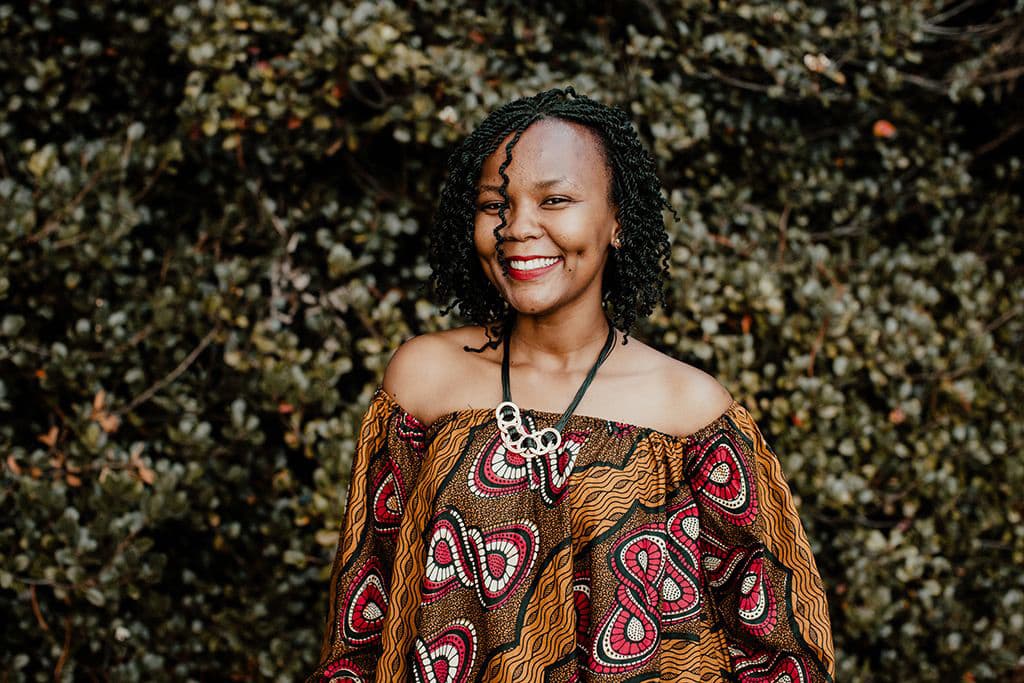
28 years ago, Christine’s life changed forever.
Christine was four years old when she witnessed her mother’s death; a bullet shot through the back of her head.
“The last memory I have of my mother is watching her be shot dead before my eyes as she pleaded for both her life and mine to be spared. I was only four years old and didn’t know the implications of her dying prematurely,” Christine says.
Christine was tortured, and her father also murdered.
Christine, a Tutsi, found herself in the care of her aunt and grandmother. These two courageous women also took in Christine’s orphaned siblings and cousins.
The women who rebuilt Rwanda
In the aftermath of the 1994 genocide, the survival of families relied mainly on the women, who made up 70% of the population.
“We thought about living first,” recalls Christine. “We thought about the next day. You would cry without knowing why you were crying… I cannot begin to explain how much the devil struck my country.”
Like Christine’s aunt and grandmother, women took in orphaned children and organised support groups for widows. From the grassroot to the government, Rwandan women undertook roles traditionally filled by men, creating stability after such violence.
11 years ago, Rwanda became the first country ever to have a female majority in parliament and late last year became the second African nation to announce a gender-balanced cabinet. Something that has inspired the next generation of women like Christine.
Finding the strength to forgive
Christine was five years old when she first entered her church-based Compassion project. She advocates that without the support she received through the church she wouldn’t be where she is today.
“My life would be a lot different if I did not have Compassion, says Christine. “I have grown in Christ through Compassion. Today, I’m able to give back to my country.”
After accepting Jesus in her teenage years, Christine decided—by God’s grace—to forgive the people who murdered her parents.
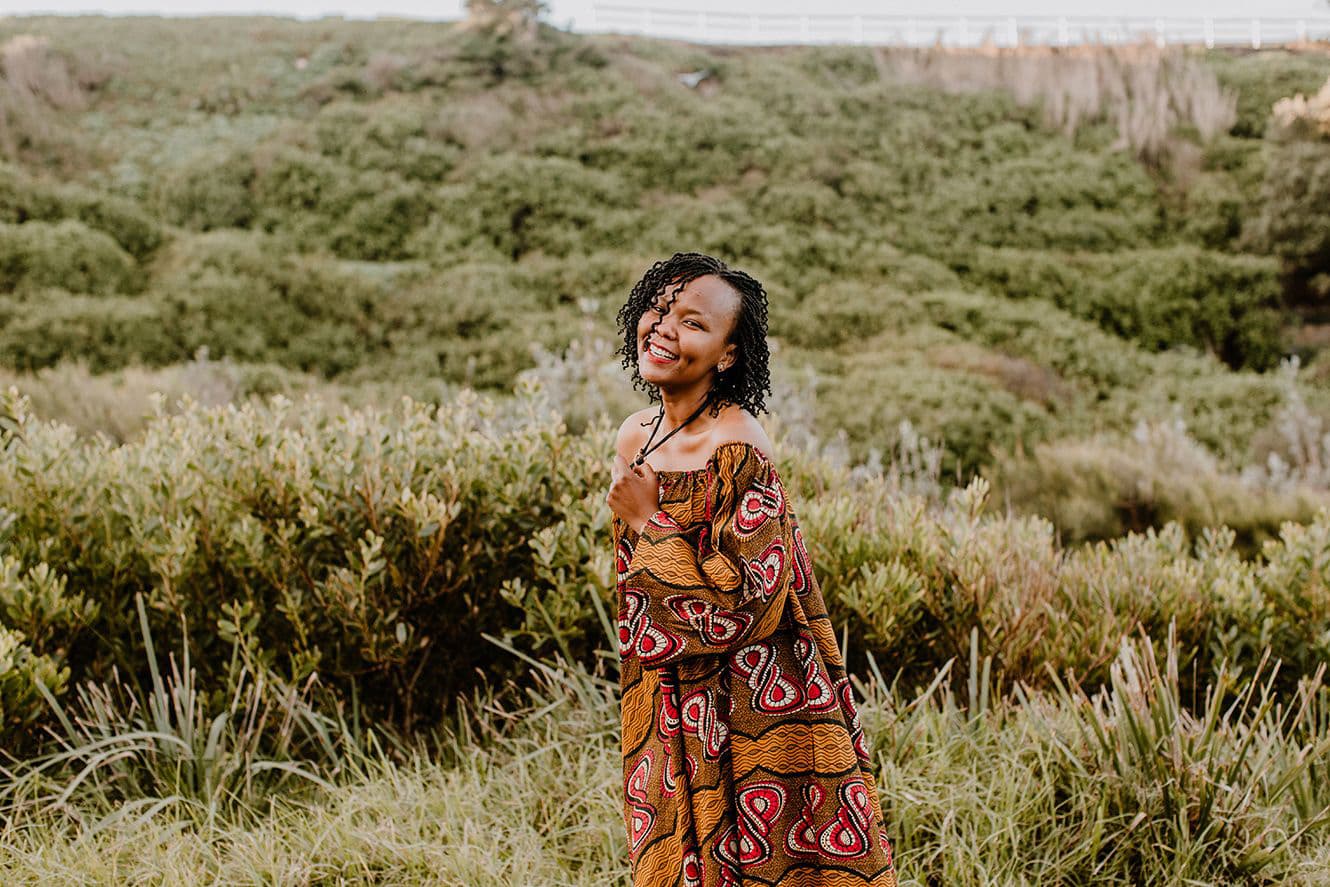
She learnt how to let go of the hatred she had been holding onto for years, and how to give it to a gracious God who notoriously makes beautiful things out of dust. And, He did just that. After excelling in all of her education, Christine went on to study political science at Rwanda National University. After graduating, she worked at the Rwandan parliament in the Senate. Today, she is a Child Protection Officer for Save the Children International.
“Helping people in need is what I love to do. I would like to be a servant leader as Jesus was. I have a dream of one day being the Minister for Human Rights.”
Discover more about empowering a child in Rwanda through child sponsorship>
Christian’s story
During the genocide the radio became a powerful tool of propaganda. Found in most homes across Rwanda, radio broadcasts were used to incite ordinary citizens into carrying out unspeakable acts of violence.
28 years later, Christian is using the airwaves to bring hope by sharing the love of Jesus.
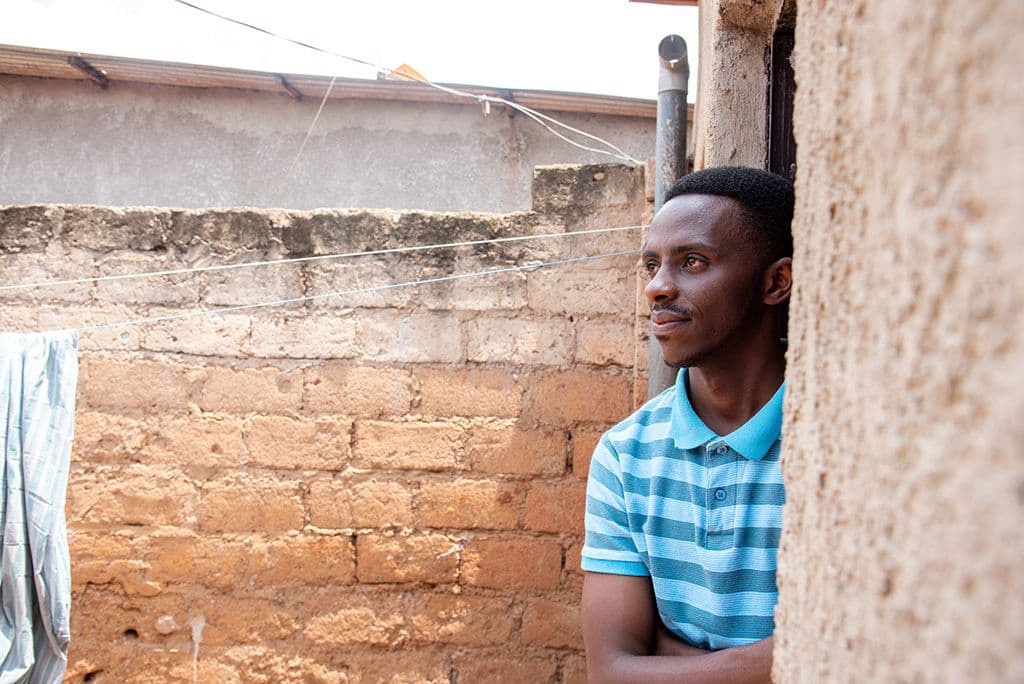
Turning a weapon into a beacon of hope
To this day Christian’s mum still can’t speak about the horrific killings, even to her son.
“I have very little information of how my mother and I survived the genocide because it’s still tough for her to share with me what happened. It was so traumatic for her as she lost my father at the time when they had just married and started a family. It’s a very delicate matter that she never wants to talk about,” recounts Christian.
Christian, was less than a year old so doesn’t remember anything about the genocide, but that doesn’t change the lasting trauma the event had on his life.
“When I lost my father, I lost my identity. I always wished to at least see a photograph of him. But God had great plans for me,” says Christian.
Thankfully, that hole was slowly filled by his local church, the words and support of a Compassion sponsor, and ultimately, Jesus. “I received love and care from my sponsor and the Compassion project staff. With their help, I was able to come to terms with not having a father because I have Jesus Christ as my Saviour,” Christian says.
“My sponsor paid my tuition and sent Bible verses to encourage me. The Compassion project staff followed up on my studies and wellbeing. The opportunity to go to school and accepting Jesus Christ as my Saviour are the greatest gifts I received in life.”
Broadcasting love
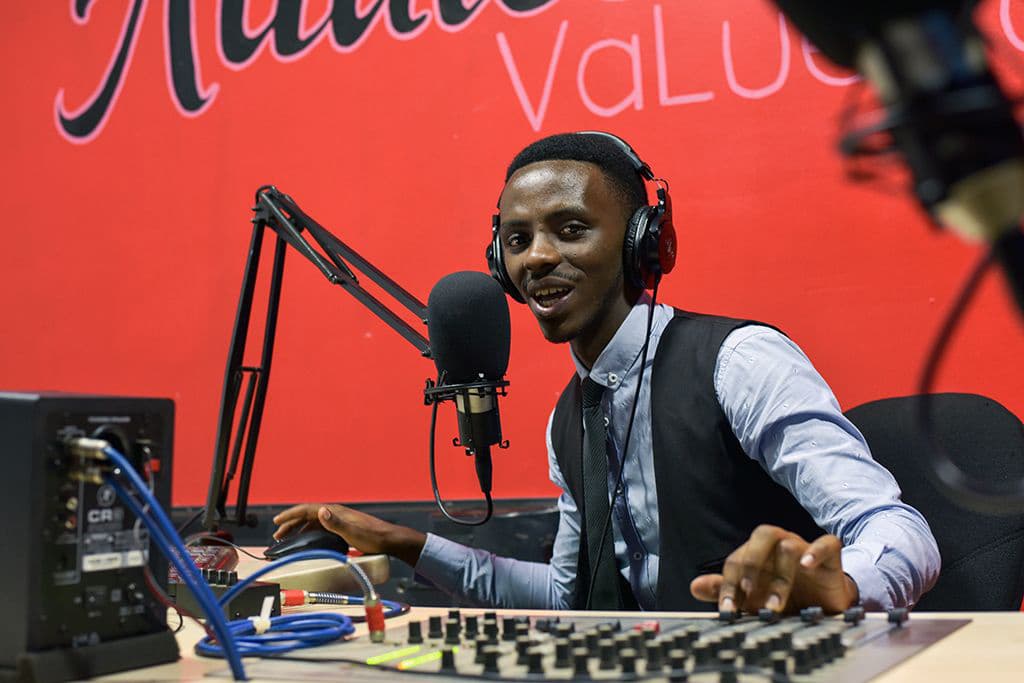
Now, Christian is working to pass it on. He is a presenter and news reporter at Authentic Radio and Television. “On the shows I host, we encourage people. Our message is that despite all the troubles in this world, God’s love is greater than the challenges we face,” Christian says.
“I want to become an international news reporter for the Gospel of Jesus Christ. I want to share love because Compassion taught me how to love selflessly.”
After the genocide: Praying for the nation of Rwanda
28 years on, there are countless young Rwandans with similar stories to Christine, Methode and Christian. For many, time has given them the opportunity to forgive, but for others the trauma of what happened is still too raw.
As Rwanda prepares to mark the 28th anniversary of the genocide, join us in praying for the nation, its communities and people. Pray for:
The next generation of Rwandans, that they would no longer see themselves in terms of ethnic differences, and that God will bind each community together in peace and harmony.
Those who lost loved ones in the genocide. Pray that our Heavenly Father will reveal His peace and comfort to them in a new way this year.
Those who are still traumatised by the violence they witnessed or experienced.
Give thanks for the incredible healing and restoration that has happened in Rwanda over the last 28 years. Pray for a continuation of this across the nation.
With all humility and gentleness, with patience, bearing with one another in love. Ephesians 4:2 ESV
Words by
Emily Laramy, Compassion photojournalists
Share:
Share:
Pray with us
Join thousands of people praying to end poverty, take action through our appeals and activities, and be inspired by how God is changing lives.
Get a little Compassion in your inbox with our Prayer and Stories email.
Remember, you can unsubscribe at any time. Please see our Privacy Policy for more information.
